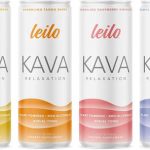Whether you’re looking to build muscle, balance blood sugar or simply need some help hitting your daily protein goals, protein powder can be a helpful option. Not only is it quick and convenient, it’s super-portable. Just toss a pre-portioned packet in your gym bag or backpack and take it with you wherever you go. Plus, it’s so easy and versatile. You can mix it with water, juice or milk, blend it into smoothies or shakes, or stir it into pancake or muffin batters or cereal for a protein boost.
As helpful as protein powder is, you might be wondering if there’s an optimal time to consume it. Should you have it in the morning or evening? Is it better pre- or post-workout? And is there a best time to take it for maximum absorption? To find out, we asked dietitians for their take on the ideal time to down your dose. Here’s what they told us.
Factors to Consider
Individual Goals
Everyone has unique health and fitness goals, and those goals may dictate the best time to consume your protein powder. For example, if you’re working towards weight loss, adding protein powder to a healthy morning smoothie can help boost satiety and make breakfast more filling. On the other hand, if you’re ramping up strength workouts to gain muscle, you may look to protein powder for pre- or post-workout fuel.
Nutrition Needs
Nutrition requirements vary considerably from person to person. For instance, if you’re following a plant-based diet, you may struggle to meet your daily protein needs through whole foods alone. In this case, incorporating a scoop of protein powder into meals or snacks can help fill the gap and ensure you hit your daily target.
Or, maybe you’re always on the go and can’t get the protein you need when you need it, like right after a workout or when traveling. This easily-portable, shelf-stable powder can help get the job done.
The Foods You’re Eating
Another key factor to consider is other foods and drinks you consume with your protein powder. For example, if you’re also eating a fat or fiber-rich food, the rate of protein absorption will slow down. Whether you are adding full-fat milk, chia seeds, a scoop of nut butter or a handful of berries to the blender along with your protein powder, their fat or fiber can reduce the rate of protein absorption.
That might sound like a negative, but it can be beneficial if you’re looking to better manage blood sugar levels or keep energy levels steady. On the flip side, if you consume protein powder with water, juice or a sports drink, it will be quickly absorbed into the bloodstream.
Medications or Supplements
Protein powder may interfere with how some medications work, especially osteoporosis or Parkinson’s disease drugs or some antibiotics. So, these medications should not be taken at the same time as protein powder. To know for sure, speak to your healthcare provider.
Additionally, pairing a fiber supplement with your scoop of protein can slow down your powder’s absorption.
Morning or Evening?
After an overnight fast, your body’s fuel tank is nearly drained and needs to be refilled. A morning dose of protein powder can replenish amino acids after an overnight fast and help with muscle preservation, says Amy Goodson, M.S., RD, CSSD, a sports dietitian and author of The Sports Nutrition Playbook.
However, morning isn’t the only helpful time to get your fix, says Goodson. Consuming protein powder in the evening can support muscle recovery and repair during sleep. In fact, research has shown that consuming 40 grams of casein protein 30 minutes before bedtime can help support muscle recovery after an evening resistance training session. So, if you hit the weight room late in the day, it might be worth a try.
Your Workout Schedule
If you’ve been a fly on the wall at the gym, you’ve probably seen people shaking protein powder in their shaker bottles. You may have also noticed that some sip it before, during or after their workouts, which might leave you scratching your head.
“Contrary to popular belief, taking protein powder before a workout doesn’t provide any special advantage over taking it after,” says Briana Butler, M.C.N., RDN, LD, a registered dietitian and co-owner of Stef & Bri Wellness. However, consuming protein powder post-workout helps replenish amino acid stores, promoting muscle recovery, she says.
While a shot of protein before a workout may not be better than consuming it afterward, pre-workout protein may still have its advantages. According to the American College of Sports Medicine, pre-exercise protein may improve overall body composition by building muscle, burning fat and increasing calorie burning for up to 48 hours. Additionally, consuming protein powder before a workout can help minimize muscle breakdown during exercise and keep blood sugar levels stable, especially when paired with a carbohydrate, says Goodson. However, she emphasizes that prioritizing carbohydrates pre-workout is most crucial, as they provide energy for optimal performance.
Is There a Best Time?
So, is there an ideal time to down your protein powder? Our experts agree that timing isn’t as important as meeting your total protein needs. This applies to all protein sources, not just protein powder. “Your body has no idea if the amino acids it is getting are coming from protein powder, milk or eggs,” says Goodson. Protein powder is simply a convenient option and can be added to lower-protein foods like oatmeal, pancakes, muffins or beverages. It’s also a great on-the-go choice for the gym. Plus, it’s easy to incorporate into snacks like dips, yogurt, cottage cheese or your favorite nut butter for healthy between-meal fuel.
The Bottom Line
Dietitians agree there’s no single best time to consume protein powder. What matters most is meeting your daily protein needs through balanced meals and snacks. Keep in mind that what you pair protein powder with can impact its absorption rate. And that includes certain medications and supplements, not just foods and drinks. Whether you prefer your protein powder in the morning, evening or pre- or post-workout, the key is maintaining an adequate overall protein intake as part of a balanced, healthy eating plan.
Of course, there are loads of options on store shelves, and sometimes, it can be tricky to figure out the best protein powder to meet your goals. If you could use some help finding the optimal powder, check out our guide to the best protein powders, according to dietitians.








